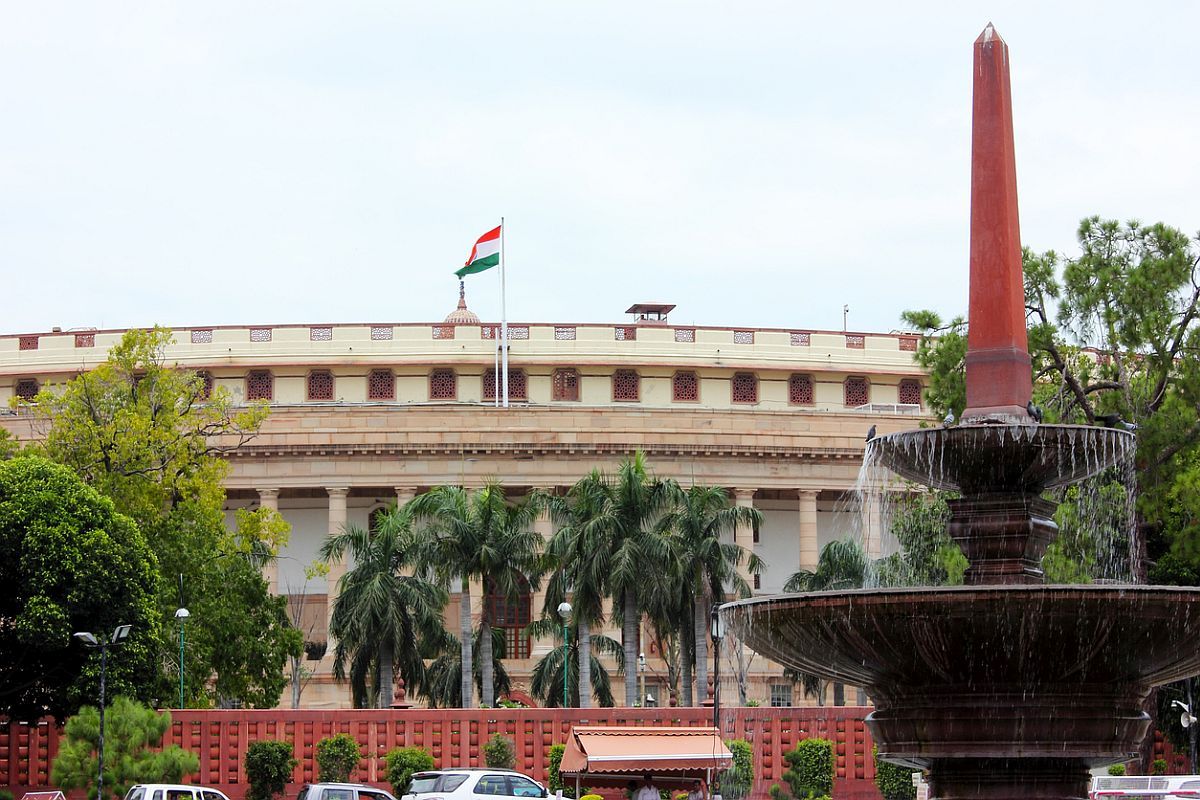Conscription law
In the crucible of conflict, Ukraine finds itself at a critical juncture, grappling with the harsh reality of war's relentless toll.
The boycott started in the Rajya Sabha last Tuesday against the suspension of eight members of the Opposition for their behaviour during the passage of the two controversial farmers’ Bills on Sunday.

Parliament House. (Photo: iStock)
The 2020 Parliament Monsoon Session ended last week, eight days before the scheduled date of 1 October. It was not clear whether it was due to Covid-19, or the Opposition’s unexpected boycott of both Houses on the session’s last two days.
The boycott started in the Rajya Sabha last Tuesday against the suspension of eight members of the Opposition for their behaviour during the passage of the two controversial farmers’ Bills on Sunday.
Announcing boycott, Leader of the Opposition Ghulam Nabi Azad maintained the members were demanding division on their amendments, but deputy chairman Harivansh rushed through the Bills.
Advertisement
Chairman M Venkaiah Naidu said the members had indulged in unruly behaviour in the well of the House, tried to uproot the Chair’s microphones, while dancing on the officials’ Table, shouting and clapping, and thrusting the Rule Book before the deputy chairman.
He said the deputy chairman had offered to conduct division a number of times, if the members had resumed their seats. Accepting a motion from minister of state for parliamentary affairs V Muraleedharan on Monday, the chairman declared the eight members suspended for the rest of the session, after a voice-vote.
The suspended members included Trinamul Congress leader in the House Derek O’Brien, his one party colleague, three Congress members, two CPI (M) members and one AAP member. There was an impasse in the House when the suspended members did not leave the chamber. The day’s sitting ended with repeated adjournments.
After the Rajya Sabha boycott, the Lok Sabha Opposition declared its boycott on Tuesday itself. Congress leader Adhir Ranjan Chowdhury said people in one house could not remain unaffected if there was “fire” in a neighbouring house.
Supported by several parties like TMC, DMK and TRS, Chowdhury said the farmers’ Bills were passed despite agitations by farmers in Punjab and other places.
Speaker Om Birla said he had given sufficient time to discuss the Bills, while agriculture minister Narendra Singh Tomar said the Congress was trying to mislead the farmers, whose income was sure to go up now. Chowdhury said the government had an antifarmer, anti-worker outlook, and, therefore, the Opposition had no choice but to boycott the House.
While the Rajya Sabha passed seven Bills, including the Essential Commodities Amendment Bill and the Taxation Bill, after the departure of the Opposition on Tuesday; the Lok Sabha disposed of the three Labour Codes which replace 25 existing Acts on labour and employment issues, the same day, without the Opposition.
On Wednesday, the last day of the session, the Rajya Sabha approved another eight Bills, including the three Labour Codes, while there was no Opposition in the House.
This raised the tally of the total Bills passed by both Houses to 25 during the 10 working days of the session.
In the middle of success, the government received a small jolt from its alliance partner Akali Dal. Its nominee in the government, food processing industries minister Harsimrat Kaur resigned.
There was consolation that the Opposition’s views on the farmers’ Bills were at least recorded by the two Houses. In the case of the three Labour Codes, which virtually write the nation’s labour policy afresh, the two Houses could not even hear what the Opposition thought about them.
Azad had requested the Rajya Sabha chairman not to go ahead with the Labour Codes’ passage without the Opposition, but his plea was rejected. Naidu cited instances when Bills were passed with some members suspended.
The session had seen stormy debates on Covid, migrant workers’ plight and the India-China face-off. But a conflict like-situation emerged when the government tried to rush through Bills, while the Opposition had its doubts. The Rajya Sabha situation could have been avoided if the minister’s reply and voting on the farmers’ Bills was deferred till the next day, as suggested by the leader of the Opposition, who complained later the standing of his office had declined.
For the first time in the history of the Rajya Sabha, a motion for removal of the deputy chairman was given. Naidu rejected it “because it was a motion, not a resolution. Moreover, the Rule of 14 days’ advance notice was not followed.”
The government was happy that it had achieved over 100% productivity in both Houses, and that too in a session during a pandemic. All 11 Ordinances were replaced by Acts.
Advertisement